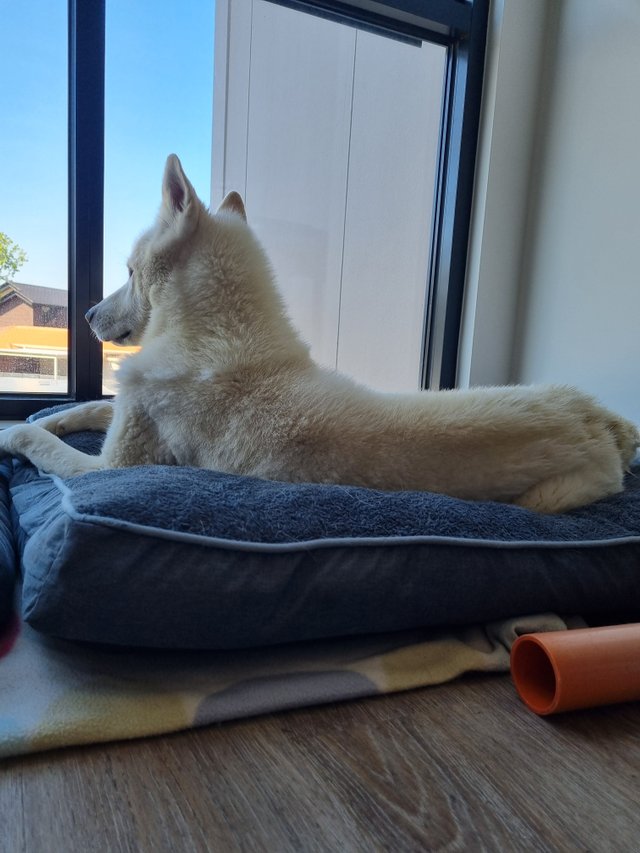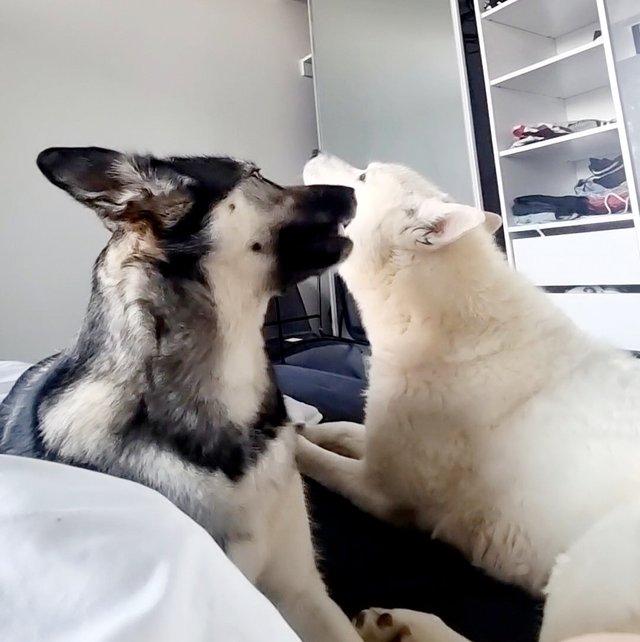

As we continue to battle Polar's malignant perianal tumor, deciphering true progress remains a formidable challenge. Here's our current stance on this afternoon of February 09, 2025:
Treatment Overview:
Fenbendazole: We've adhered to a modified version of Dr. Thomas Seyfried's press-pulse protocol, starting with 7 weeks at 222mg, then a bridging week at 333mg, and now 3 weeks into a phase of 444mg, all administered 3 days a week with 4 days off. This schedule has been paired with a ketogenic diet aimed at altering the metabolic environment to be less favorable for cancer cells.
Progress Monitoring: The tumor's response has been obscured by various factors, including inflammation from straining, accidental bumps, or bleeding due to sudden movements, which can temporarily reopen the wound. This makes it hard to distinguish between actual tumor regression and temporary stabilization due to wound management.
Interpretation Challenges:
Fluctuating Cycle: We're currently in a cycle where apparent improvements might be more about controlling external impacts on the tumor site rather than true cancer regression.
Seeking Clear Outcomes: Our ultimate goal is to break this cycle, moving towards undeniable progress in managing Polar's cancer.
New Treatment Avenues:
Ivermectin: Inspired by Dr. William Makis, we're considering integrating ivermectin into Polar's regimen.
Safety Checks: Before adding ivermectin, we'll confirm its safety for Polar through liver function tests and checking for the absence of the MDR1 gene mutation, which can affect drug tolerance in some breeds.
Fenbendazole Toxicity: Dr. Makis has suggested in his discussions, including a recent podcast with Dr. Paul Marik, that concerns about fenbendazole's toxicity might be overstated. The incidence of negative toxicity effects is noted to be less than 2%, although comprehensive studies on this specific use in veterinary oncology are limited.
Fenbendazole Frequency Adjustment:
A Gentle Increase: We're contemplating a slight shift from administering fenbendazole 3 days a week to 4 days, with a break reduced from 4 to 3 days. This is a cautious step before our next vet visit at the start of March.
Potential Escalation: If we see no notable improvement, particularly after the potential introduction of ivermectin at our next vet visit at the start of March, we might consider increasing to 6 days a week, following Dr. Makis's more aggressive protocol. This would be contingent on Polar's tolerance and the safety of such a schedule.
Exploring Further Synergistic Effects:
Maintaining Press-Pulse: We might keep the original fenbendazole schedule with its slightly increased frequency as mentioned above, while introducing ivermectin to explore potential synergistic benefits. Here's what this could look like:
Mechanism of Synergy: Ivermectin could enhance fenbendazole's action by targeting different pathways within cancer cells. Fenbendazole primarily disrupts microtubule assembly, while ivermectin might inhibit P-glycoprotein, potentially increasing the concentration of fenbendazole inside cancer cells, thus making both drugs more effective.
Metabolic Synergy: The ketogenic diet aims to restrict glucose, which cancer cells prefer for energy. Ivermectin might further this effect by possibly inhibiting cancer cell proliferation through its effects on nuclear hormone receptors, complementing the diet's strategy of reducing glucose availability to cancer cells.
Immune Modulation: Both fenbendazole and ivermectin have been suggested to have immunomodulatory effects. Ivermectin might enhance the immune system's ability to recognize and attack cancer cells, providing a complementary boost to the actions of fenbendazole, which could be working to expose cancer cells for immune targeting.
Reducing Resistance: By attacking cancer cells through multiple fronts simultaneously, this combination might delay or prevent the development of resistance. Cancer cells that adapt to one treatment might be less able to adapt to the combined effects of both drugs.
Monitoring and Adjustment: We would closely monitor Polar's response to this combination, looking for signs of enhanced tumor regression or any adverse reactions, ready to adjust the treatment plan as needed.
Long-term Quest: We're on a quest for a protocol that could lead to Polar's complete recovery, believing that within the vast sea of medical knowledge, a solution for his specific cancer might exist.
Conclusion:
Polar's treatment journey is complex, with the line between progress and temporary relief often blurred by external factors. We're focused on finding a strategy that truly mitigates the cancer's impact. Your insights, experiences, or any additional research could be pivotal in this journey.
#PolarInu #CancerTreatment #PetHealth #CommunityDriven
Note: All decisions regarding Polar's treatment are made in consultation with veterinary professionals, and this post is shared for community insight and support, not as medical advice.